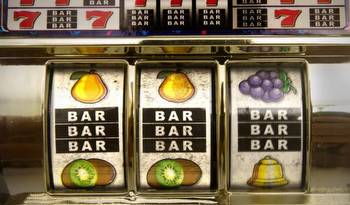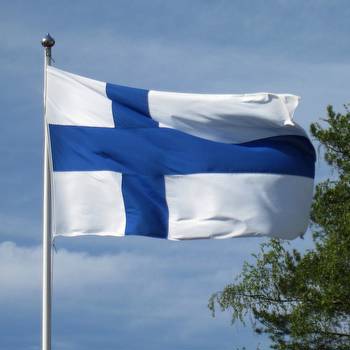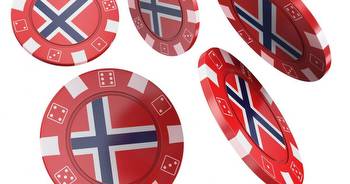The Finnish gambling act designed to protect problem gamblers, or ensure a state monopoly?

The first of the reforms introduce payment blocks for any iGaming operator advertising for Finnish players except for state-owned monopolies. On top of this identification will be rolled out to extend to land-based slots, which currently sit outside of the monopolies' control.
The last major changes are that advertising by private individuals, meaning influencers is clamped down with a possible penalty payment of up to tens of thousands. B2B business for them will also become available, meaning the Finnish monopoly can sell their technological solutions or a platform to international iGaming operators.
At first glance, this may seem a bit weird that government actively tries to drive international operators out of the Finnish market and meanwhile the Finnish monopoly is allowed to do B2B business with these same operators.
So, why is the Finnish lottery act controversial?
There are a couple of reasons, the first one which makes it particularly controversial amongst people not interested in the iGaming industry is the fact that it is unconstitutional. Blocking payment provisions is outside the realms of government as stated by Finland’s constitutional committee.
The committee went on to say that this move is clearly designed to prop up a state monopoly when recreational and safe players are looking for legitimate options elsewhere, due to the state monopolies' poor service offering, with the Administrative Committee calling the current system “practically broken”.
Mikko from casinosivut, a website that reviews and rates the casinos and bookmakers told us “it’s not going to stop Fin’s from playing online, if anything it’s just going to push the iGaming industry towards illicit practices. There are large amounts of players who seek international iGaming operators in favour of the monopoly due to bigger jackpots, better returns to players and a far bigger selection of games and this will not stop with the payment blocks”. The Finnish iGaming market is just far too developed that players would be satisfied with just offerings from Veikkaus. As an example, the Finnish iGaming market is solely responsible for the development of Pay 'n Play casinos and cashback casinos.
Also with the current development by the Finnish gambling act, we can have a look at Norway which introduced payment blocks back in 2017, at first this seemed to be effective as many iGaming operators struggled to operate on the Norwegian market with the blocks going live. It didn't however take that long for black market payment gateways to start flogging the market which was basically left empty by the blocking of licensed and regulated payment services. It's no shock to anyone that if there is demand, someone will always come with the supply.
It’s the age-old argument of prohibition being useless.”
And yet another industry insider, Maarten Haijer, secretary of the European Gaming and Betting Association echoed these sentiments.
“The introduction of PSP blockings is an implicit admission that many of Finland’s iGaming prefer to bet on other websites rather than that of the state-run monopoly,” he said. “There are many reasons why they do so: the availability of better betting odds, and better diversity and expertise in the products offered, are to name a few.
“In the online world, consumers vote with their feet and that is why we will continue to encourage the government to rethink, rather than reinforce, the country’s online monopoly model and advocate for the benefits of establishing a well-regulated, multi-licensing model for iGaming in Finland.”
So if Finland’s Constitutional Committee thinks it’s bad, the industry sees it as bad and the players are unhappy, one is left to wonder who this bill is for.
So what happens to Finnish casinos now?
The first thing we’ve seen is that handful of international operators have seized all Finnish operations, and many others whilst continuing to operate have stopped advertising to Finnish players, which one could argue is the Lottery Act working as intended.
If the technological solutions are found and payment blocks do go live. The Finnish iGaming market will see some changes as Finnish players truly love their online bank payments, with currently 80% of deposits made by Finnish players, being done from online banking.
The next part comes with what this means for the players.
Will the new payment blocks leave players' money at risk?
If the bill had gone through without amendments, then yes it would have, however, there was an addition that states that banks are not to block withdrawals or transfers of winnings to players. Whilst this sounds good on paper, it doesn’t mean this system is flawless, there is also the issue that this makes it increasingly likely to be circumvented by grey/black market payment providers as happened with Norway. It seems like the blocks are a done deal, although it is currently reliant on banking compliance and the government's technical implementation to work going forward. In practice, it doesn’t seem to come into force till the 2nd quarter of 2023 as this is the current estimate from the financial industry to implement these payment blocks. So there is still time for this to change before that.
What does the future look like for Finnish gaming?
From what we’ve seen happen in other markets the first thing that happens is a number of black market operators and payment providers popping up to claim the market share left empty by the companies who stopped providing iGaming services to Finnish players. These being smaller and less regulated (usually they have some form of licence, although not all do), we’re also likely to see a significant increase in crypto gaming and the use of digital banks and e-wallets as players seek to work around banking restrictions to get the best deal.
There is also one final speculation, although it isn’t currently known, and that is that the Finnish gambling act could change to allow for international iGaming companies to apply for Finnish specific licences and the Finnish Monopoly themselves to join the fray of international iGaming companies. If this is the case it is likely to change following the next parliamentary elections in 2023, after the payment ban has been brought into force. And tax them appropriately, which could make up for the shortfall in revenue generated by the state monopoly. The likelihood of this increases significantly if the problem iGaming does not reduce in line with the upcoming changes as politicians will be far less inclined to protect the state monopoly.





































